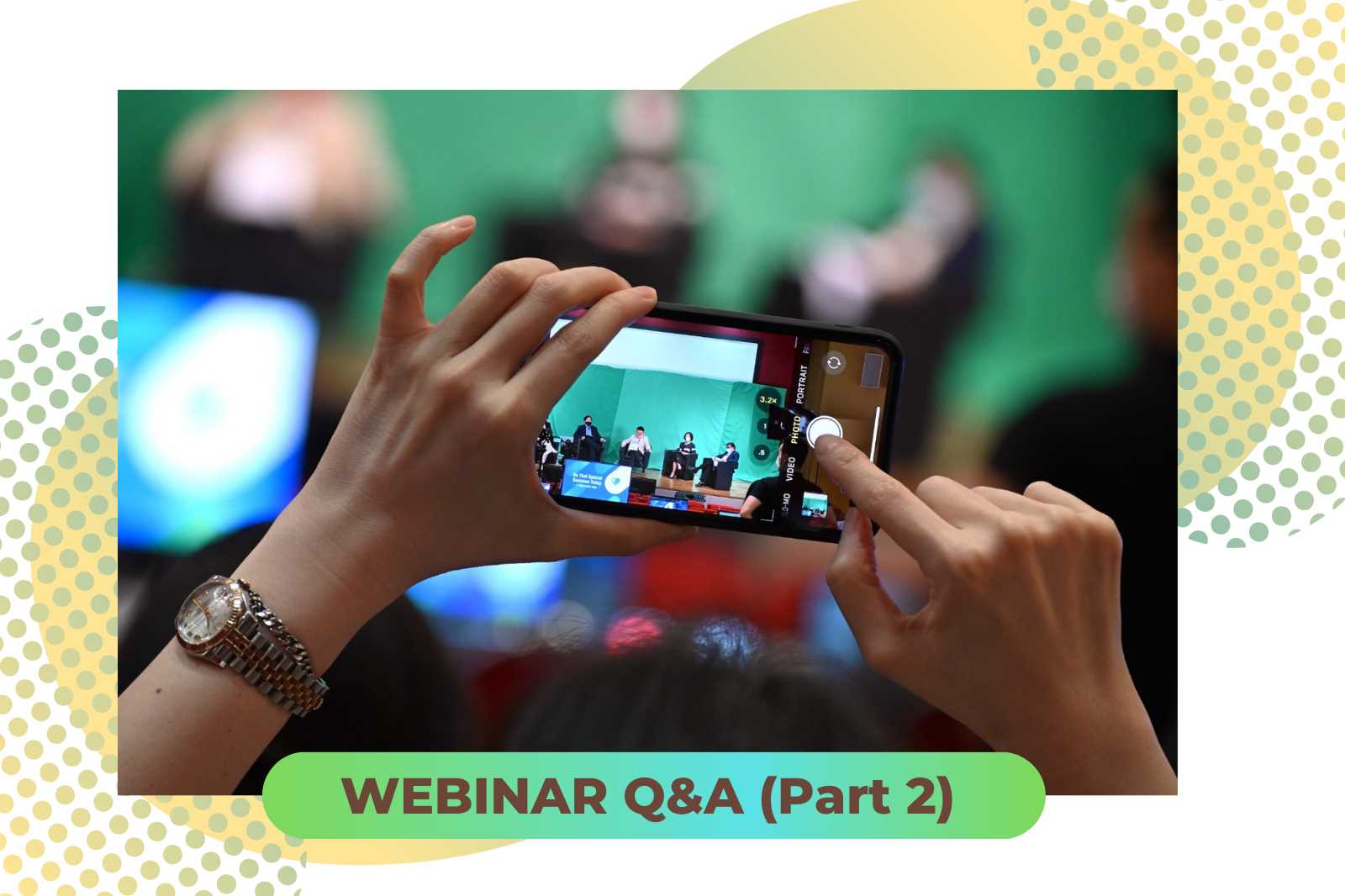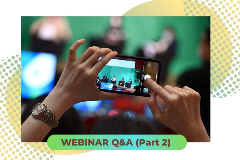Government officials will NEVER ask you to transfer money or disclose bank log-in details over a phone call. Call the 24/7 ScamShield helpline at 1799 if you are unsure if it is a scam.
In the Spotlight
Discover true stories of inspiration, inclusiveness and care
Share With Us!
Q&A from Be That Special Someone Today Webinar (Part 2): How do we know if someone needs help?

Did you attend the Be That Special Someone Today Webinar on 15 December 2020? You can read a summary of it here, or watch the full recap video here.
If your question was not answered during the final Q&A segment, fret not! Here is part 2 of 2 of the panelists' answers to your questions during the session:
Q: When should we offer help/ How do we know if someone needs help/ What do I do if I offer help and got rejected?
A: Some commuters may not require help or are able to commute independently in spite of their disabilities. At times, if help is not rendered correctly, it may lead to confusion for the commuters with needs. For example, it is not advisable for commuters to hold commuters with visually impairment by their hand to lead them. Hence, some commuters in need may be hesitant to receive help.
It is good practice to first ask whether they require your assistance, and how you may render help to them. Some commuters might reject this help, but it should It should not discourage us from extending help to others in the future.
Q: When someone talks loudly and seem to be not in the right mind, should we ignore him or her or how can we help?
A: Commuters can still render assistance to other persons with autism and/or intellectual disability. Tips to interacting with persons with autism and/or intellectual disability are as below:
1.
Introduce yourself. Ask for his or her name.
2.
Maintain eye contact, but do not glare at the person.
3.
Use simple and clear language. Use visual aids such as objects, photos or pictures to explain.
4.
Be patient. Give the person time to respond.
5.
Rephrase what you are saying if the person does not get it the first time.
6.
If necessary, move to a calm and quiet environment to speak with the person.
Commuters can also approach staff at the rail stations/bus interchanges for assistance.
Q: Given the pandemic and need for social distancing, how do we continue to extend help to vulnerable commuters?
A: Commuters can still render assistance to vulnerable commuters, such as offering seats to those who need them more, but keep verbal/physical communication to a minimal. Please ensure that your mask is worn properly, and practise good personal hygiene, such as sanitising or washing your hands after helping someone physically. If further assistance is required, please approach staff from the rail stations/bus interchanges.
Q: Is there any volunteering opportunity?
A: We are encouraged by the interest shown by the commuting community and their willingness to step up and lend a helping hand where needed. Interested public can reach out to us to co-create some initiatives and take action. Firstly, we hope that all individuals can start off to exhibit our caring behaviours and be Caring Commuters Champions.
Caring Commuter Champion is a volunteer programme under the committee. The objectives are to 1) grow a volunteer pool of commuters, provide them with training to be champions of caring commuter behaviours; and 2) create an inclusive and gracious commuting
culture by having these champions to influence and educate their social circles and communities. There will be training conducted by SG Enable to allow registrants to better understand the challenges/difficulties faced by commuters with special needs
and how to provide help appropriately. Members of public can sign up as a champion at
go.gov.sg/caringcommuterschampion. For corporates/organisations keen in exploring volunteering opportunities, please write to LTA-TransportForAll@lta.gov.sg.
Q: Can we pair public transport ground staff with public volunteers who are travelling to the same destination through technology?
A: We will explore the possibility of tapping on technology for volunteering opportunities.
